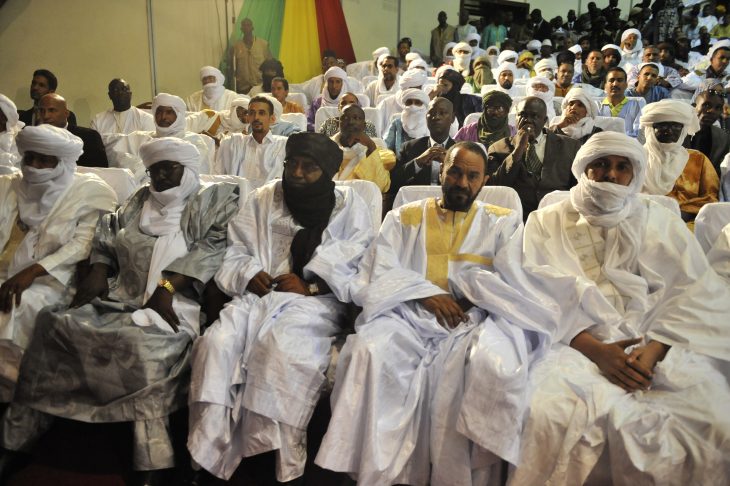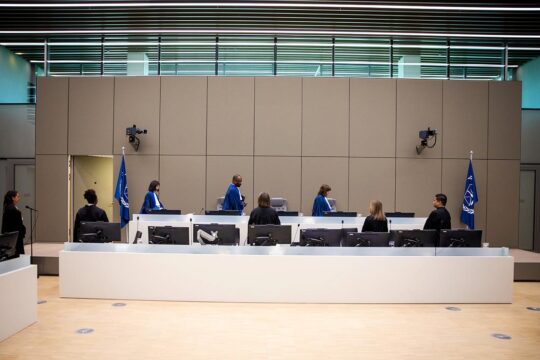Mali’s Touareg rebels on Saturday signed in Bamako a peace accord already approved by the pro-government side and international mediators. This marked a historic date for the country, which should put an end to years of war.
The agreement was signed for the Coordination of Azawad Movements (CMA, rebel Touareg coalition based in the north of the country) by Sidi Brahim Ould Sidati, a leader of the Azawad Arab Movement (MAA), at a ceremony attended by Malian President Ibrahim Boubacar Keïta and the head of the UN mission in Mali, Mongi Hamdi.
The last obstacles to the agreement had been removed on Friday, including the withdrawal of arrest warrants against 15 CMA leaders. Pro-government armed groups known as the Platform also promised to pull out of the town of Menaka, which was another CMA demand.
The order lifting the arrest warrants, a document obtained by Studio Tamani on Friday, was signed on June 15 by a High Court judge in Bamako. It concerns 15 people who were being sought for crimes against humanity, genocide, war crimes, undermining state security, crimes of a racial, regional or religious nature, murder, international drug trafficking and terrorism.
On Thursday night, a CMA leader, Almou Ag Mohamed, had confirmed that an important delegation of his movement would travel from Kidal in northern Mali to the capital Bamako for the signing ceremony.
The withdrawal from Menaka was announced on Thursday evening by a Platform leader, Haballa AG Hamza, who said it would start on Friday.
“Our justice system is sick”
The decision to lift the arrest warrants has provoked lots of reactions especially from human rights organizations. Amadou Tiéoulé Diarra, head of the League for Justice, Development and Human Rights, says it is a move for peace, that it is not an amnesty or an endorsement of impunity.
“We need to understand that even if these people are free, the Algiers accord says there will be an international commission of inquiry into serious crimes committed in Mali,” he told Studio Tamani in a telephone interview. “And I think that at the end of the day, that’s what matters. Because it will be the international commission’s job to determine individual responsibilities, and those individuals will have to account for their alleged crimes.”
So is justice part of peace? “Yes,” he says, “but justice is a means. Our judicial system is sick, and we need to take care of it, because we cannot administer justice and restore peace if our justice system is sick. If it is sick, we need first to bring it back to health. That is part of the process.”
The Algiers “peace and reconciliation accord” was signed by the government side, international mediation and some armed groups on May 15 in Bamako. Three of the five members of the CMA had refused to sign, demanding additional negotiations. After new talks with Bamako, they announced on June 5 in Algiers that they would put their final signature to the agreement on Saturday, June 20.
Northern Mali fell in 2012 to Jihadist groups linked to Al-Qaïda, after the rout of the army. The Jihadists were scattered and partially pushed out of the region by an international military operation launched in January 2013 at the initiative of France and which is still ongoing. But large swathes of the country are still outside the government’s control.






